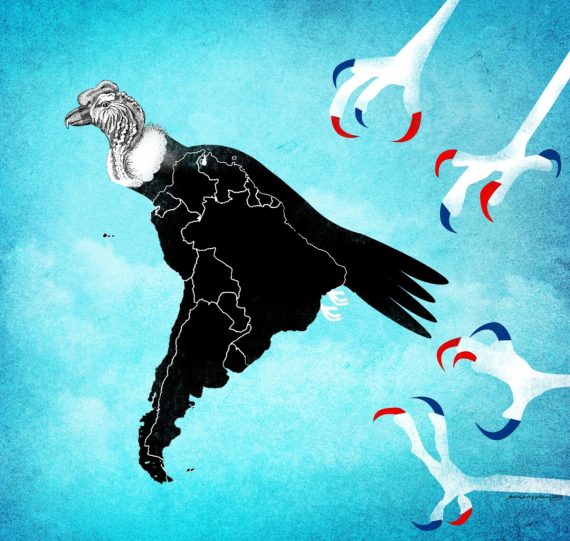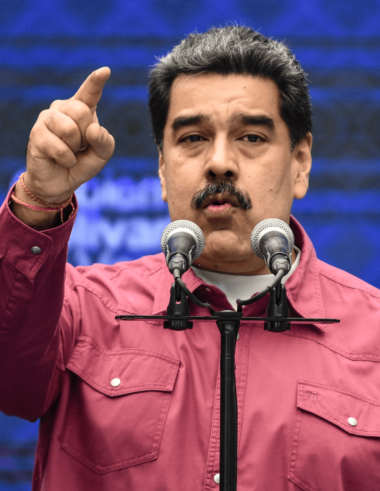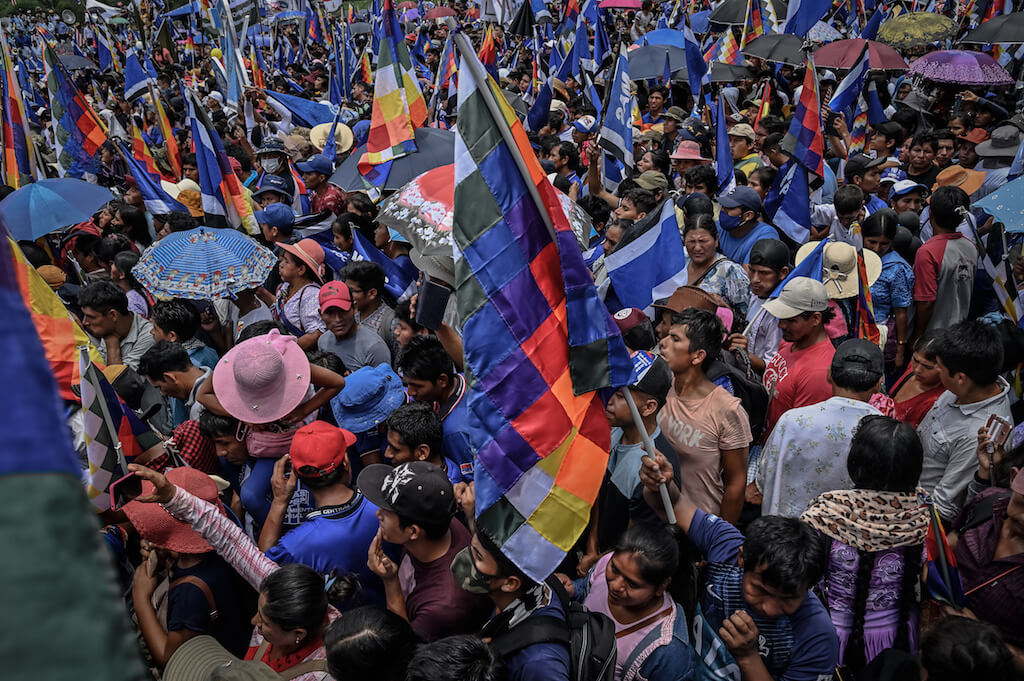The Andes Mountains are the backbone of South America. Their snowy summits are exceptional witnesses to the greatness of the flight of the condor, a black-and-white bird of the New World vulture family that is native to South America and is part of the coat of arms of Colombia.
It is considered the king of birds by the Mapuche people of Chile, a symbol of the sky by the Quechua and Aymara indigenous peoples of Bolivia, and an icon of life and survival for the whole continent due to its status as an endangered species.
Maybe because of its symbolic meaning, the CIA cynically named Operation Condor after this South American bird, outlining its ambitious plan to dominate the destiny of all countries in the region and guarantee the implementation of its particular idea of “democracy” and neoliberalism through local puppets.
The infamous Monroe Doctrine, which was introduced by John Quincy Adams, the sixth president of the United States, and was attributed to James Monroe in 1823 is not very clear to many Latin Americans.
“America for the Americans” is the essence of this doctrine but many of those living below the river of Río Grande ask, “Aren’t we American enough?” This question is raised because Latin Americans haven’t seen many Europeans conspiring to overthrow their democratically elected governments but mostly leaders of their own with very strong ties to the imperialist establishment of the United States.
The history of the United States’ intervention in national affairs of other countries through direct military force or clandestine support for local paramilitary groups extends to more than 170 years. Mexico lost almost half of its territory between 1846 and 1848 to its northern neighbor; California and Texas became part of what is today the United States, while the locals sadly becoming the first victims of U.S. imperialism in Latin America.
In 1854, the U.S. bombarded Nicaragua, installing a banker named William Walker a year later as its president. Then, came the plan to expel the Spaniards from Cuba and Puerto Rico, a decaying empire against a rising one. Today, Puerto Rico is essentially a colony of the United States.
In 1903, the United States promoted the segregation of Panama from Colombia, in an effort to stop the French from building the Panama Canal which allows a quick passage from the Atlantic to the Pacific Ocean and vice versa. The United States directly controlled the canal until December 31, 1999.
Since then, every country from Mexico to Argentina has been impacted by the bald American eagle’s twisting of destinies reaching its peak with the infamous Operation Condor. Operation Condor promoted the installation and support for United States-friendly dictatorships in several countries: Hugo Banzer in Bolivia (1971-1975), Ernesto Geisel in Brazil (1974-1979), Augusto Pinochet in Chile (1973-1990), Alfredo Stroessner in Paraguay (1954-1989), Juan María Bordaberry in Uruguay (1973-1976), and Jorge Rafael Videla in Argentina (1975-1978).
Chile’s case is especially exceptional. Chile is the country with the highest economic indicators and standards of living in Latin America. Recently, it has been rocked by intense social unrest with months of street protests, and scores of injuries and deaths among civilians due to torture. In October 2020,
Operation Condor promoted the installation and support for United States-friendly dictatorships in several countries: Hugo Banzer in Bolivia (1971-1975), Ernesto Geisel in Brazil (1974-1979), Augusto Pinochet in Chile (1973-1990), Alfredo Stroessner in Paraguay (1954-1989), Juan María Bordaberry in Uruguay (1973-1976), and Jorge Rafael Videla in Argentina (1975-1978).
Chile has voted in favor of amending its constitution, which according to the majority of its population, is a nefarious legacy of the Pinochet era.
People in other countries in Latin America ask Chileans why they took to the streets if they live in what has been dubbed as a Latin American economic miracle, thanks to Pinochet´s era.
Well, it seems that the neoliberal model, the unequivocal seal of every aftermath of imperial intervention, has more unhappy people than what the media has told us for decades.
Colombia, with a fifty-million population situated in northern South America, has a different story to tell. Considered as one of the strongest and most stable democracies in the region, it is also the biggest producer of cocaine in the world.
Using the excuse of a war on drugs that has been vastly proven to have failed, a model perpetuated by Colombian elites has produced devastating poverty rates among its people. So much so that it is considered one of the three most unequal nations in the world.
Bolivia, with nearly 70% indigenous population, only saw a native president in 2006 when Evo Morales, a union leader from the Aymara people, won the presidency in the heart of South America.
Many years of internal conflict between leftist guerrillas and government forces, with the help of paramilitary organizations, has caused even more pain and misery there, especially in the rural areas of the country with evident consequences also in major cities.
Colombians ask why the U.S. fuels this war, which has only led to more bloodshed, with weapons and military support. Meanwhile, on the streets of Chicago and New York, where most of these drugs are consumed, they seem happy with the drugs industry. There is no answer to this question, it seems.
Bolivia, with nearly 70% indigenous population, only saw a native president in 2006 when Evo Morales, a union leader from the Aymara people, won the presidency in the heart of South America.
With a socialist and anti-imperialist approach, Morales achieved an impressive economic growth for Bolivia: an average of 5% growth in the GDP (one of the highest in the region). His economic plans resulted, among other important numbers, in decreasing extreme poverty from 36.7% to 16.8% between 2005 and 2015, and a reduction of the illiteracy rate from 13.3% to 3.7% during his first few years in office according to official UNESCO figures.
Recommended
Accused of trying to cling to power through fraud and corruption, and following a victory at the polls for the fourth time, Morales resigned and left to Mexico due to pressure by the military and a portion of the Bolivian opposition led by the pro-United States politician Jeanine Añez. Añez entered the Presidential Palace one night in November 2019 carrying a copy of the Bible and claiming that God gave the Bolivian opposition the mandate to “save Bolivia from anarchy and evil.”
Evangelical groups in Latin America are, just like those in the United States, becoming important electoral support for pro-imperialist regimes. Eventually, in October 2020, Luis Arce, a politician from Morales’s political party, won the Bolivian elections with 55% of votes, allowing Morales’s return to his homeland.
Simón Bolívar, the Venezuelan hero attributed with the liberation of five nations in Latin America (Venezuela, Colombia, Ecuador, Perú, and Bolivia) from Spain once said, “The United States seems destined by Providence to plague America with misery in the name of liberty.” His words are truer today more than ever.
Latin Americans wonder if someday a free mighty Andean condor, not the American eagle disguised as one, will cast its magnificent shadow over the Andes, without feeling endangered by extinction. Time will only tell, but the peoples from Mexico to Argentina still have the final say.







